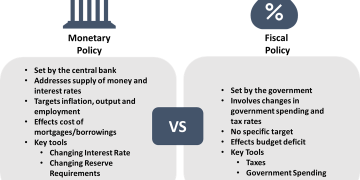Introduction
In the last decade, cryptocurrency has grown from a niche technological innovation to a global phenomenon. From Bitcoin’s early days in 2009 to the diverse array of cryptocurrencies available today, the world has witnessed the rapid evolution of digital assets. While initially seen as speculative investment vehicles, cryptocurrencies have slowly started to prove their worth in various aspects of human life.
But beyond their speculative nature, what real value can cryptocurrency bring to humanity? Can it truly reshape global finance, provide economic inclusion, protect individual freedoms, or enhance privacy and security? This article will explore the potential benefits and value that cryptocurrencies could offer to individuals, businesses, governments, and society at large. It will also delve into the societal, ethical, and technological challenges that come with integrating cryptocurrency into the broader fabric of human life.
1. Cryptocurrency and Financial Inclusion
One of the most powerful arguments for the value of cryptocurrencies lies in their potential to foster financial inclusion. According to the World Bank, nearly 1.7 billion adults worldwide do not have access to a formal banking system. This unbanked population is often excluded from essential financial services, such as savings accounts, loans, and insurance, due to barriers such as geographical location, income level, or lack of documentation.
Cryptocurrencies can address many of these challenges by offering a decentralized, permissionless, and borderless financial system. For individuals in underserved or unbanked regions, cryptocurrency provides a viable alternative to traditional banking systems. People can send, receive, and store money without the need for a physical bank or intermediary. This opens up access to global markets and financial systems, potentially allowing individuals in remote areas to participate in the global economy.
Furthermore, mobile-based cryptocurrency wallets can be accessed via smartphones, which are becoming increasingly ubiquitous. This allows individuals in developing nations to participate in financial transactions with minimal infrastructure requirements. Cryptocurrencies thus serve as a tool for economic empowerment, enabling people to engage in trade, save, and invest, thereby lifting themselves out of poverty.
2. A More Secure and Transparent Financial System
One of the primary advantages of cryptocurrencies is the security and transparency they offer through blockchain technology. Blockchain, the distributed ledger technology underlying most cryptocurrencies, is designed to be immutable and transparent, making it incredibly difficult to alter or falsify records. This provides a level of accountability and trust that is often lacking in traditional financial systems.
In contrast to conventional banking systems, which rely on centralized authorities to verify and process transactions, blockchain allows for peer-to-peer transactions without the need for intermediaries. This reduces the potential for corruption, fraud, and manipulation, as transactions are recorded on a public ledger that can be audited by anyone. Additionally, the anonymity provided by many cryptocurrencies helps to protect the privacy of users, giving them greater control over their financial data.
This transparency could prove especially valuable in countries with weak governance or high levels of corruption. In such environments, blockchain could be used to increase the integrity of public records, governmental processes, and elections, promoting greater trust in institutions and reducing the potential for fraud.
Moreover, cryptocurrency could help eliminate inefficiencies in international money transfers, which are often slow, costly, and prone to fraud. By bypassing traditional intermediaries such as banks and remittance companies, cryptocurrencies like Ripple (XRP) or Stellar (XLM) allow for instant, low-cost, cross-border transactions, which could have a profound impact on global trade and remittances.
3. Empowering Individuals with Digital Ownership and Control
Cryptocurrencies also offer individuals greater control over their financial assets. Traditional financial systems often place significant control in the hands of banks and governments, whether through interest rates, monetary policy, or other regulatory mechanisms. Cryptocurrencies, however, are built on the idea of decentralization, meaning that no single authority controls them. This gives individuals the ability to control their assets without relying on third-party intermediaries.
For example, Bitcoin’s fixed supply and the algorithmic control of its issuance make it resistant to inflationary policies that are common in fiat currencies. This makes Bitcoin particularly attractive to individuals living in countries with hyperinflation, such as Venezuela or Zimbabwe, where traditional currencies are rapidly losing value. By storing wealth in cryptocurrency, individuals can preserve purchasing power in a way that is not subject to the whims of central banks.
Moreover, cryptocurrencies allow for the tokenization of assets, meaning that ownership of physical or intellectual property can be digitally represented on the blockchain. This opens up new avenues for asset ownership and investment, allowing for fractional ownership of assets such as real estate, art, and even intellectual property. Tokenization could make high-value assets more accessible to a broader segment of the population, democratizing wealth and opportunities for investment.

4. Revolutionizing the Way We Work: The Gig Economy and Decentralized Autonomous Organizations (DAOs)
Cryptocurrency is also playing a role in transforming the way people work, particularly in the gig economy. Today, millions of people worldwide rely on platforms such as Uber, Fiverr, and Upwork for freelance work. However, these platforms often charge high fees and control the terms of engagement between workers and clients.
Cryptocurrency offers an alternative through decentralized platforms, which allow individuals to directly interact with clients, without the need for an intermediary. This peer-to-peer economy could significantly reduce fees, increase income for workers, and provide more flexible and equitable work opportunities. Platforms such as Ethereum-based freelance networks are already demonstrating how cryptocurrencies can help workers and employers engage directly in transactions, ensuring fairer compensation and greater autonomy.
Additionally, the rise of Decentralized Autonomous Organizations (DAOs) is enabling workers to participate in decentralized decision-making. DAOs are organizations that are run by smart contracts and blockchain governance, where token holders can vote on decisions related to the organization’s operations, finances, and goals. This could lead to more democratic and transparent business practices, enabling workers to have a say in how the organization is run, and in some cases, even own a stake in the enterprise.
5. Cryptocurrency as a Hedge Against Global Economic Instability
Cryptocurrencies, especially Bitcoin, have increasingly been viewed as a store of value in times of economic uncertainty. Bitcoin has often been compared to gold, as both assets are seen as a hedge against inflation, currency devaluation, and geopolitical risks.
During times of economic crises or when traditional financial systems are under stress, people tend to seek assets that are less susceptible to manipulation and government intervention. As governments increase their debt levels, engage in quantitative easing, or print excessive amounts of fiat currency, the purchasing power of traditional money can erode. Cryptocurrencies offer a form of digital gold, providing an alternative asset class that is not controlled by any central authority.
As global debt levels continue to rise and central banks push interest rates to historic lows, Bitcoin and other cryptocurrencies may become increasingly attractive to individuals and institutional investors seeking to preserve wealth and protect against economic instability. Moreover, the global accessibility of cryptocurrencies allows people from different parts of the world to invest in an asset that is not subject to the specific risks of their own national economy.
6. Environmental Sustainability and Cryptocurrency Mining
A common criticism of cryptocurrencies, particularly Bitcoin, is their environmental impact due to the energy-intensive process of mining. Bitcoin mining, which relies on a proof-of-work consensus mechanism, consumes vast amounts of electricity. However, this environmental concern is being addressed through the development of more energy-efficient mining techniques and the transition to alternative consensus mechanisms, such as proof-of-stake.
Ethereum, for example, transitioned from proof-of-work to proof-of-stake in 2022, significantly reducing its energy consumption and environmental footprint. Furthermore, cryptocurrency mining operations are increasingly using renewable energy sources, such as wind, solar, and hydroelectric power, in an effort to mitigate their carbon impact. The shift toward more sustainable energy sources in cryptocurrency mining could help balance the benefits of decentralization with environmental concerns.
7. Challenges and Risks
Despite its potential, cryptocurrency is not without its challenges and risks. Price volatility, regulatory uncertainty, scams, hacks, and illegal activities such as money laundering are all significant concerns. Moreover, cryptocurrencies still face technological hurdles in terms of scalability, interoperability, and user adoption.
However, the ongoing innovation in the space, including improvements in blockchain scalability, regulatory frameworks, and the development of central bank digital currencies (CBDCs), offers hope for addressing some of these challenges in the future.
Conclusion
Cryptocurrency holds immense potential to bring value to humanity. It can foster financial inclusion, provide a more secure and transparent financial system, empower individuals with digital ownership, and create new forms of work and organizational structures. It offers a hedge against economic instability and could play a role in shaping more sustainable financial systems.
However, as with any disruptive technology, the integration of cryptocurrency into the broader economy presents challenges that must be addressed. Whether it’s overcoming environmental concerns, improving scalability, or navigating regulatory hurdles, the future of cryptocurrency will depend on the ability of governments, developers, and communities to find solutions that balance innovation with responsible adoption.
If successfully implemented, cryptocurrency has the potential to revolutionize how we interact with money, access financial services, and participate in the global economy. Its value to humanity lies not only in the financial opportunities it presents but in its ability to reshape societal structures and empower individuals in ways that were previously unimaginable.
















































